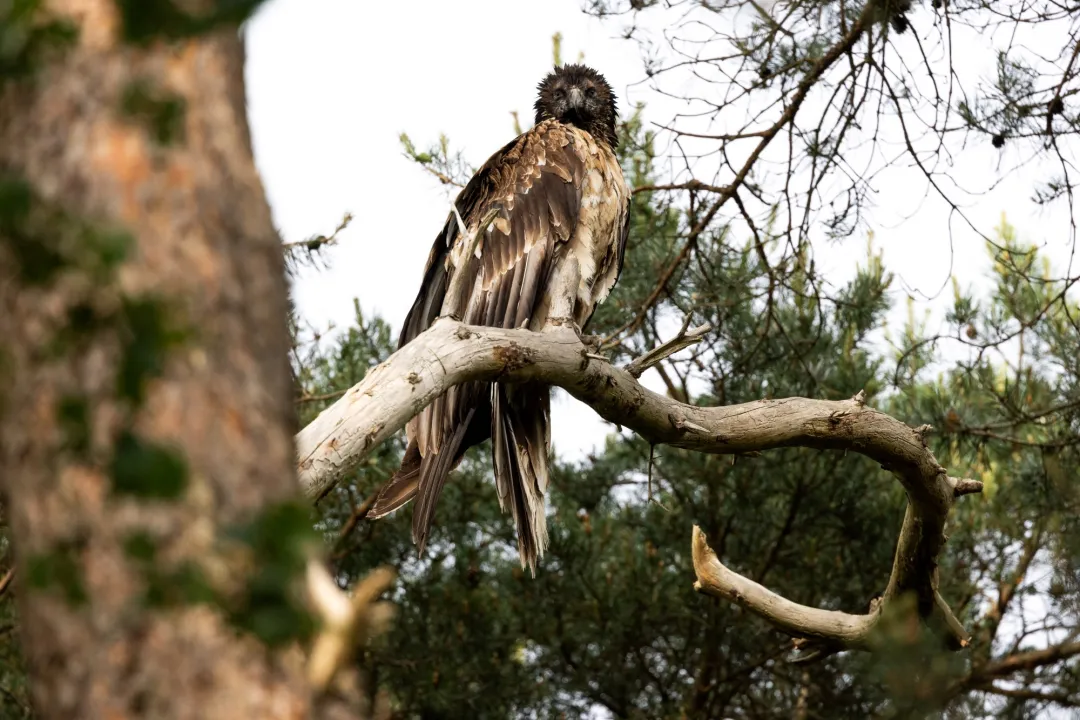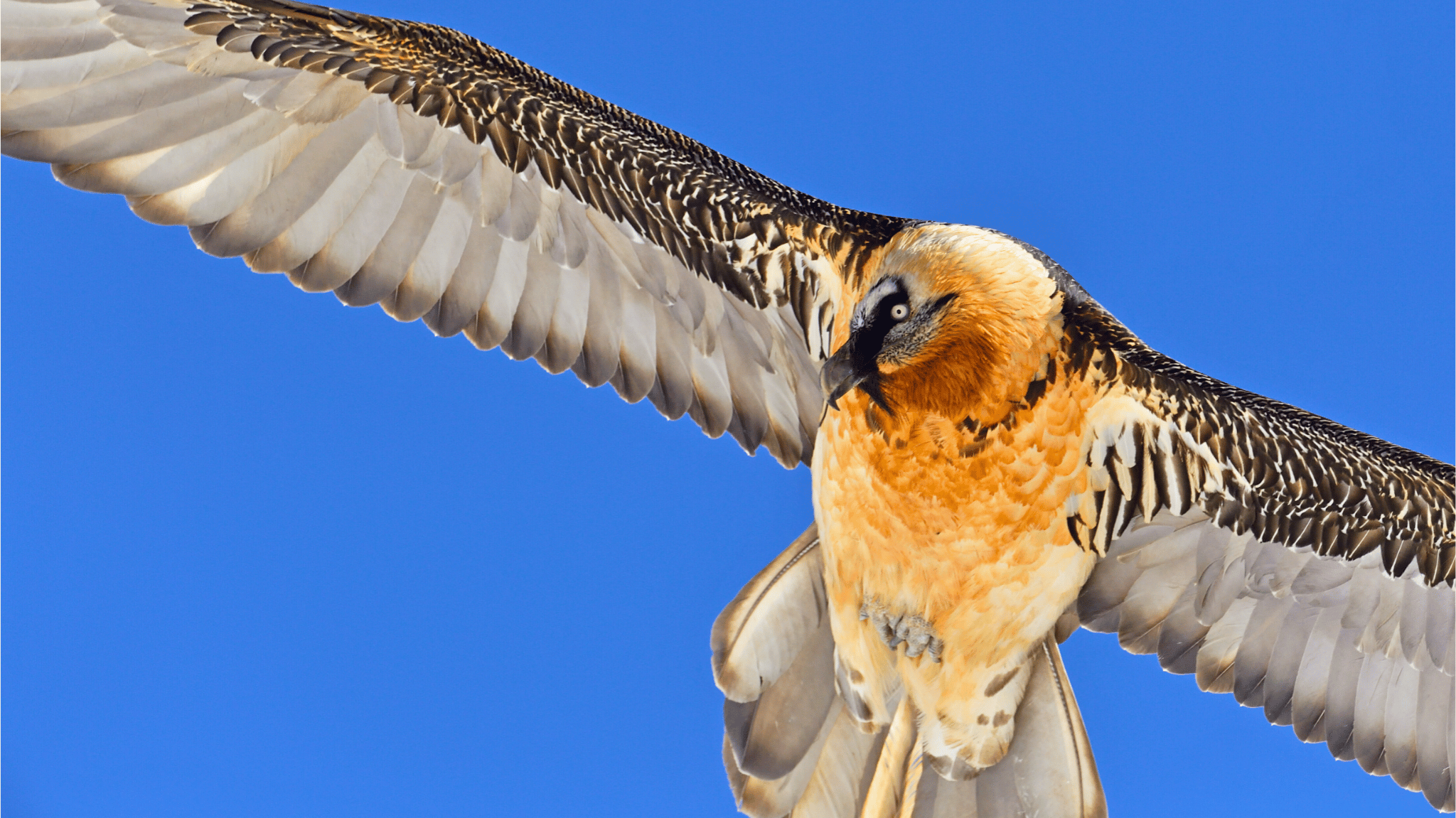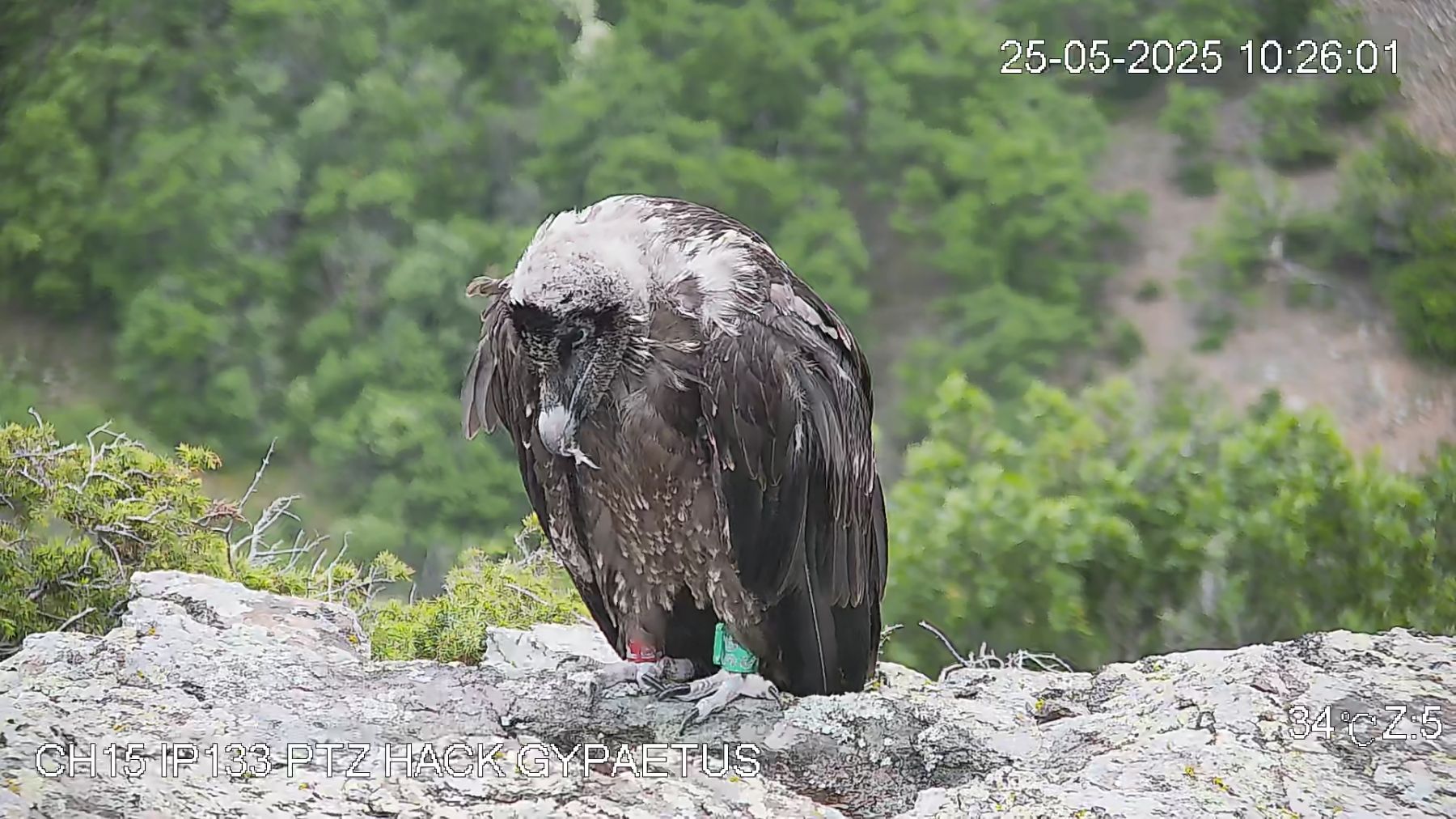Curiosity piqued the interest of many in Poland, especially the birdwatching community, when an impressive Bearded Vulture was seen soaring in the city of Poznan, even stopping by apartment buildings.

It’s already the second time this fearless vulture, known as Rei del Cause, has ventured north and needed to be rescued twice since his release at Grand Causses National Park in Southern France in 2022.
This curious bird, who is of captive origin, is not scared to explore new habitats – which provides a lot of interesting insights into his life but also exposes him to many potential threats.
The story of Rei del Cause
Rei del Cause (BG1128) hatched two years ago in captivity at Asters Breeding Centre in Haute-Savoie, France. He was released in Grand Causses National Park on 9 May 2022, together with another male, Roc, as part of the LIFE GypConnect project.

Since his release, Rei del Cause has already grown to be quite an adventurer. Last year, in 2023, he decided to fly to the Netherlands and then to Germany. When arriving at Bergen Rügen his unusual movements worried the monitoring team and they contacted Tierrettung Wildlife Rescue Association for help. After hours of searching in an inaccessible forest, the rescue team found the bird lying on a fallen tree, in a fragile condition. Rei del Cause was transported to the wildlife rehabilitation centre in Lauterbach, Germany, where he was very weak, weighing only 3.5 kg, and spent some time there to recover before his transportation back to France.
Becoming the most famous Bearded Vulture in Poland
Now, less than one year later, he decided to travel again towards the North, first to Germany but this time turning to the East and flying all the way to Poland. Last Tuesday, 28 May 2024, Rei del Cause was located in the city of Poznan. The reason why he flew there was likely due to the thunderstorms.
In Poznan, he surprised the resident Maciej Mleczko by greeting him at his apartment’s window sill. The video filmed by Mleczko where he is greeting the bird caused a sensation in Poland and the vulture quickly became a celebrity.
As soon as the bird was detected in the city, our monitoring team was alerted and followed its movements closely in order to avoid a similar tragic fate that his fellow Roc (who was released at the same time) suffered in the Netherlands in 2023.
On Wednesday morning, 30 May, our Polish colleagues found Rei del Cause weak on the ground. The vulture seemed pretty exhausted – the pouring rain and the strong wind likely did not help with his condition. It was easy to catch him, which is something that never happens to healthy individuals, and showed that something was not okay. With the help of the Polish contacts and collaborative rescue efforts, the bird was successfully captured on Wednesday and safely transferred to Poznan Zoo.

After being transported to Poznan Zoo, the bird was checked by a veterinarian. On arrival at the zoo, the bird was only 4,36 kg of weight. In comparison, when Rei del Cause was released a year ago, he weighed 5,2kg. At the Zoo, he was soon hydrated subcutaneously and will be taken good care of until full recovery. He has already started eating on his own and swallowing a few pieces, which is a positive sign.

Why are the young Vultures flying North?
Despite all the attention, young Bearded Vultures venturing to the north is not that uncommon. In fact, many of them do so in their second year. Several have reached northern France, the UK, Belgium, the Netherlands or even Denmark and Sweden in the last few years.
Vultures are bold travellers, crossing borders and enduring long flights across Europe in spring and summer. Juvenile Bearded Vultures often journey thousands of kilometres away from their mountain homes.
These dispersal movements likely help establish connections with other populations. Young birds might also follow other migrating species and benefit from strong winds, though the exact reasons are unclear. For Alpine Bearded Vultures and those from Andalusia, most dispersion happens to the north, which is also puzzling.
Thanks to the GPS transmitters fitted in Bearded Vultures released, we can trace their movements in real-time and act swiftly in case suspicious data is received.
Many threats exist outside their usual mountain habitat
Even though flying North is common for the species, unfortunately, not all stories end well. There are many threats that Bearded Vultures are facing, more so outside of their typical habitats.
Food scarcity can jeopardize their well-being during these journeys, especially in more populated and humanized areas. Moreover, human infrastructures for energy and transportation present significant dangers to vultures, often leading to fatal outcomes.
In the last few years, we have seen several young Bearded Vultures killed on these ventures either being hit by a train, colliding with a wind turbine or being electrocuted.
Need for cross-border cooperation
The swift action by Polish colleagues is a great example of why international collaboration is so important and how effective communication and quick response can be crucial in rescuing vultures.
Migratory species, particularly birds, are unaware of political borders. Travelling vast distances across countries, they face many threats, sometimes fatal. Aware of the fundamental role of international cooperation in safeguarding vulture species, we at the Vulture Conservation Foundation (VCF) strive to promote the exchange of best practices and conservation measures across Europe.
Big thanks to Lukazs Czajka and Blazej Nowak for their help in checking on Rei del Cause and assisting with the rescue and also to all the staff in Poznan Zoo for taking care of him.
We are very thankful to all who have been involved in rescuing Rei del Causse and wish him a quick recovery.
The team of the LIFE Gyp’Act project, the continuation of LIFE GypConnect, is in close contact with Polish colleagues to ensure a full recovery and make plans for the future of this vulture.






